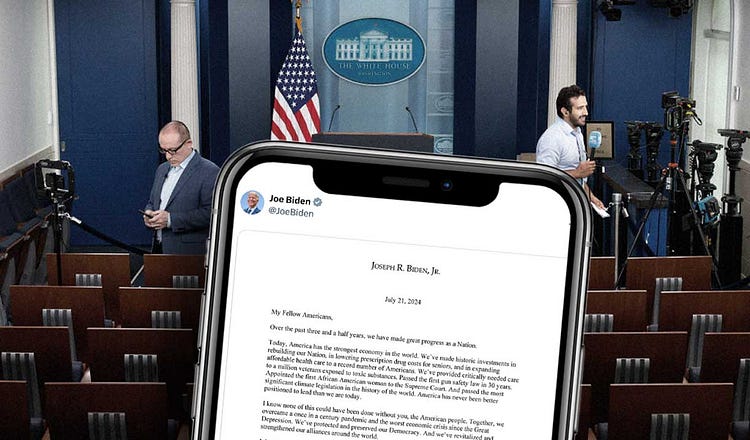Twitter Is Real Life Now

Twitter is now the center of the country’s political universe, for better or worse, writes River Page. (Photo illustration by The Free Press, images via Getty and X)
Biden staffers found out he was stepping down the same way as the rest of us. This is a point of no return.
24
This piece was first published in our news digest, The Front Page. To get our latest scoops, investigations, and columns in your inbox every morning, Monday through Thursday, become a Free Press subscriber today:
The phrase “Twitter isn’t real life” has never seemed less true. That’s not to say the average Twitter user is the average American—which is us…
Continue Reading The Free Press
To support our journalism, and unlock all of our investigative stories and provocative commentary about the world as it actually is, subscribe below.
$8.33/month
Billed as $100 yearly
$10/month
Billed as $10 monthly
Already have an account?
Sign In



